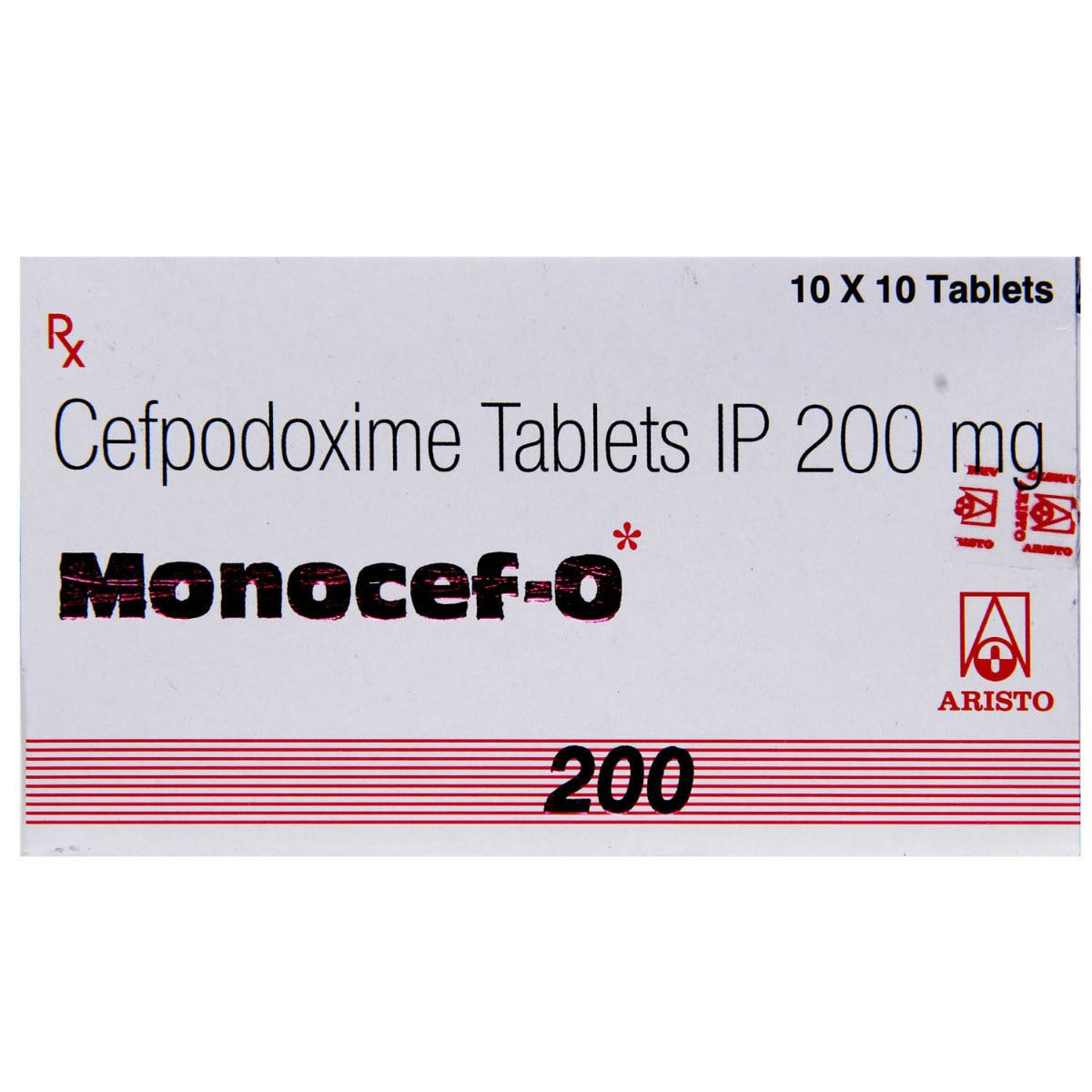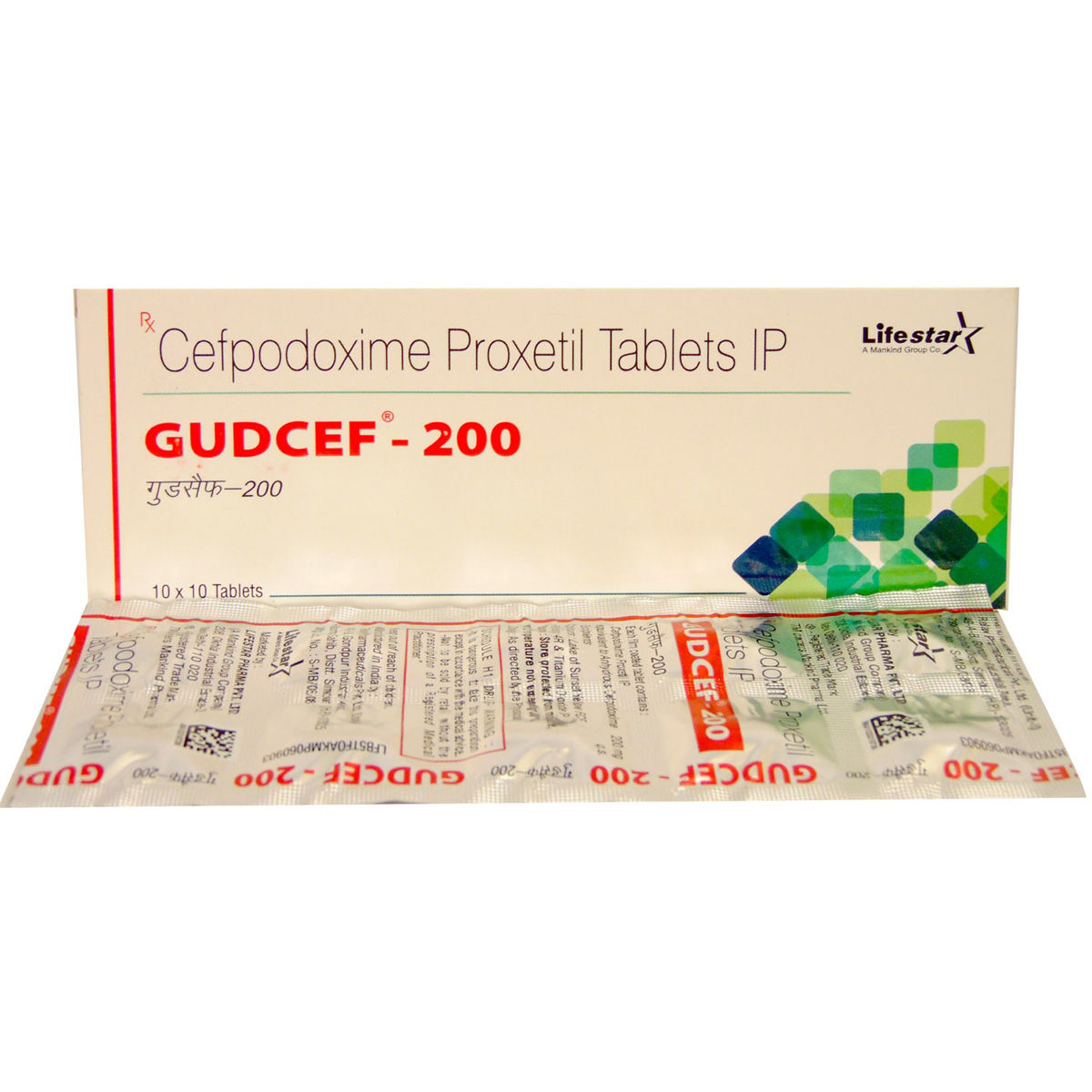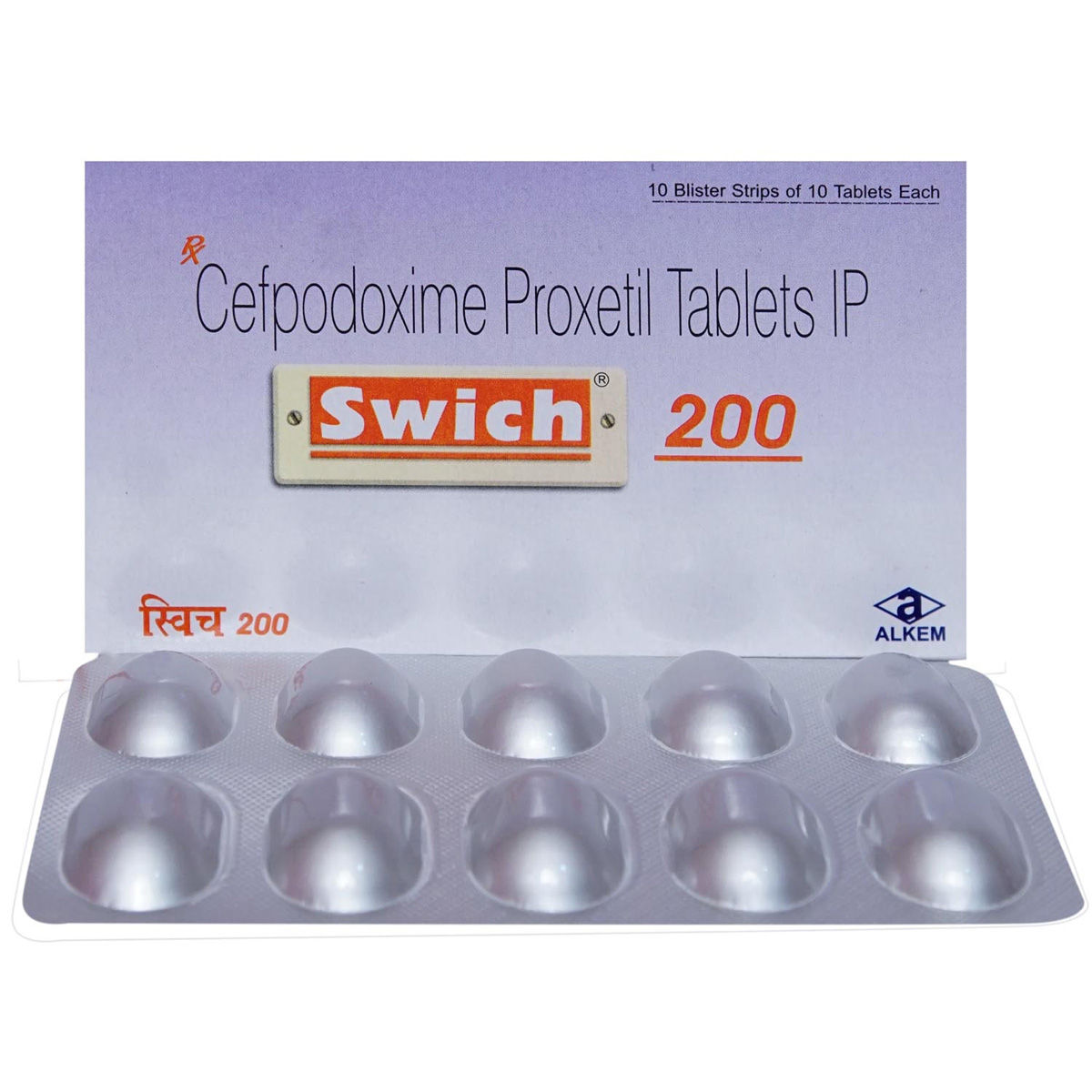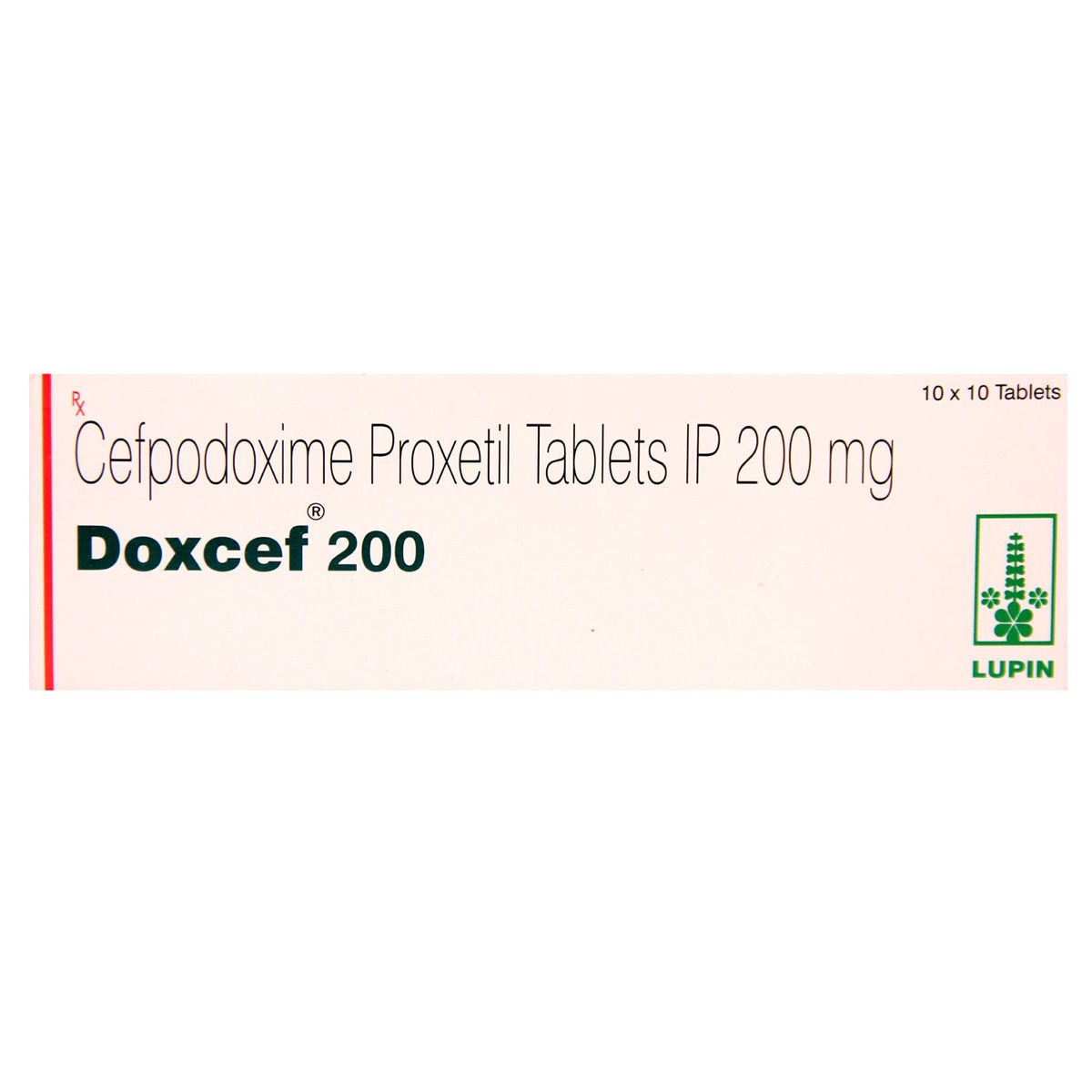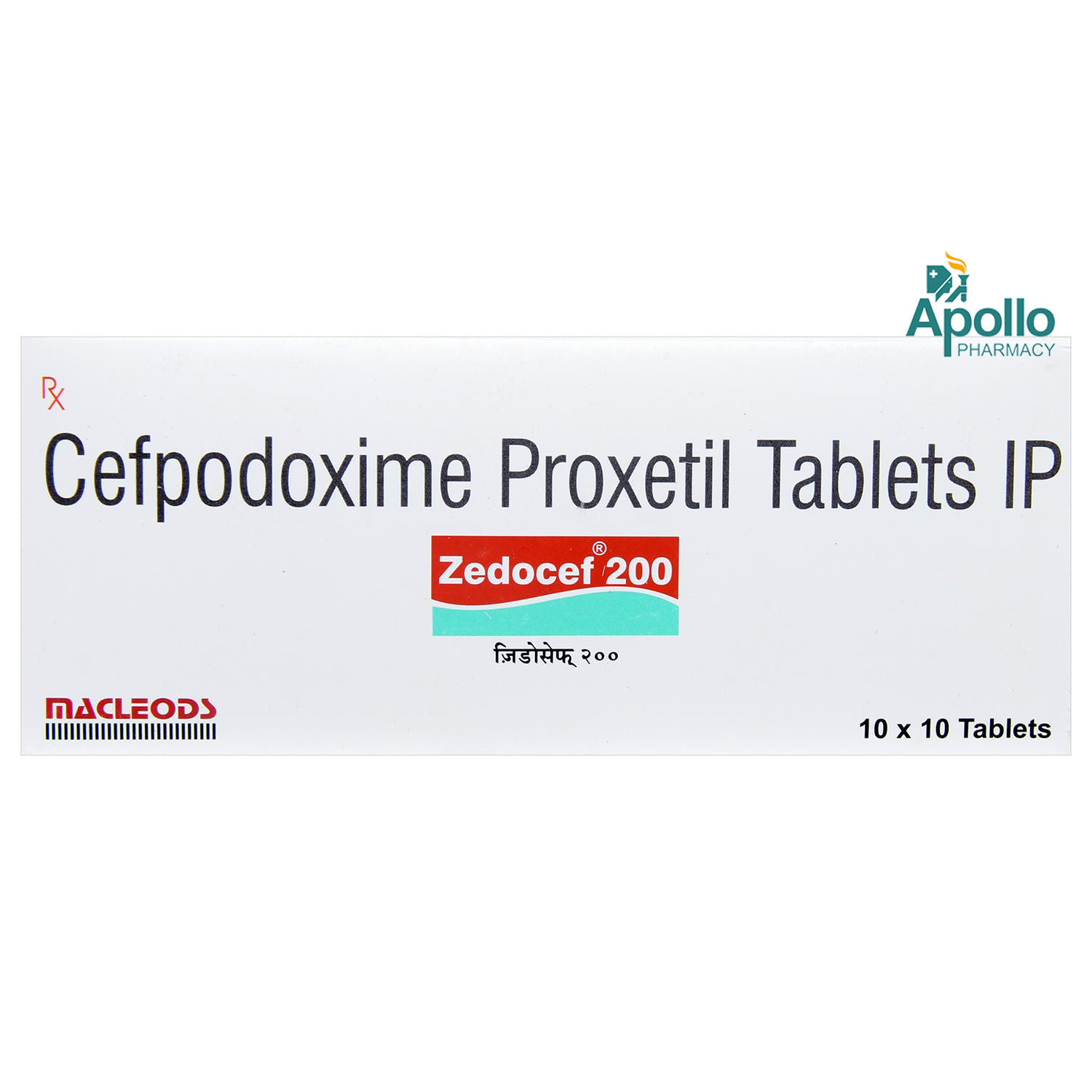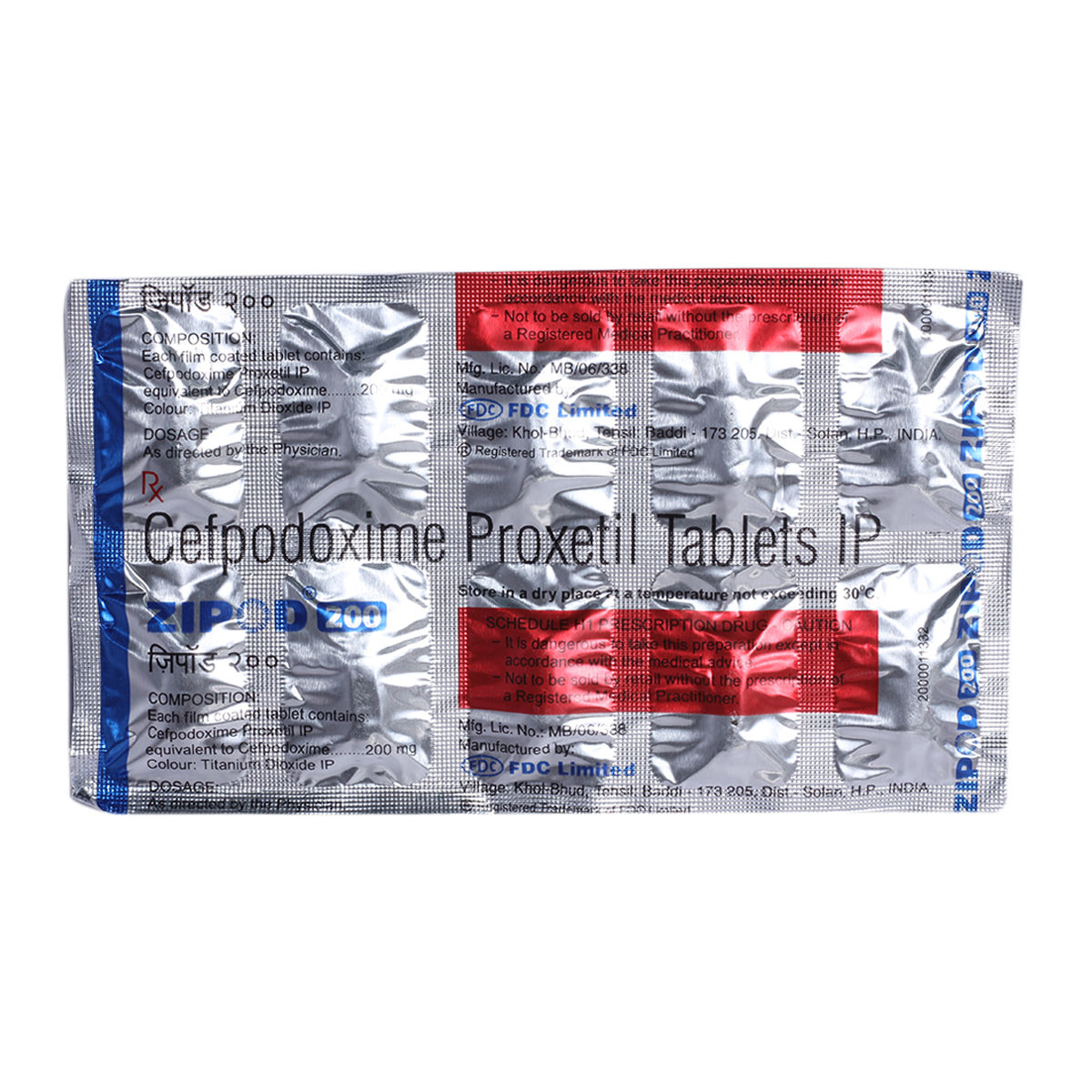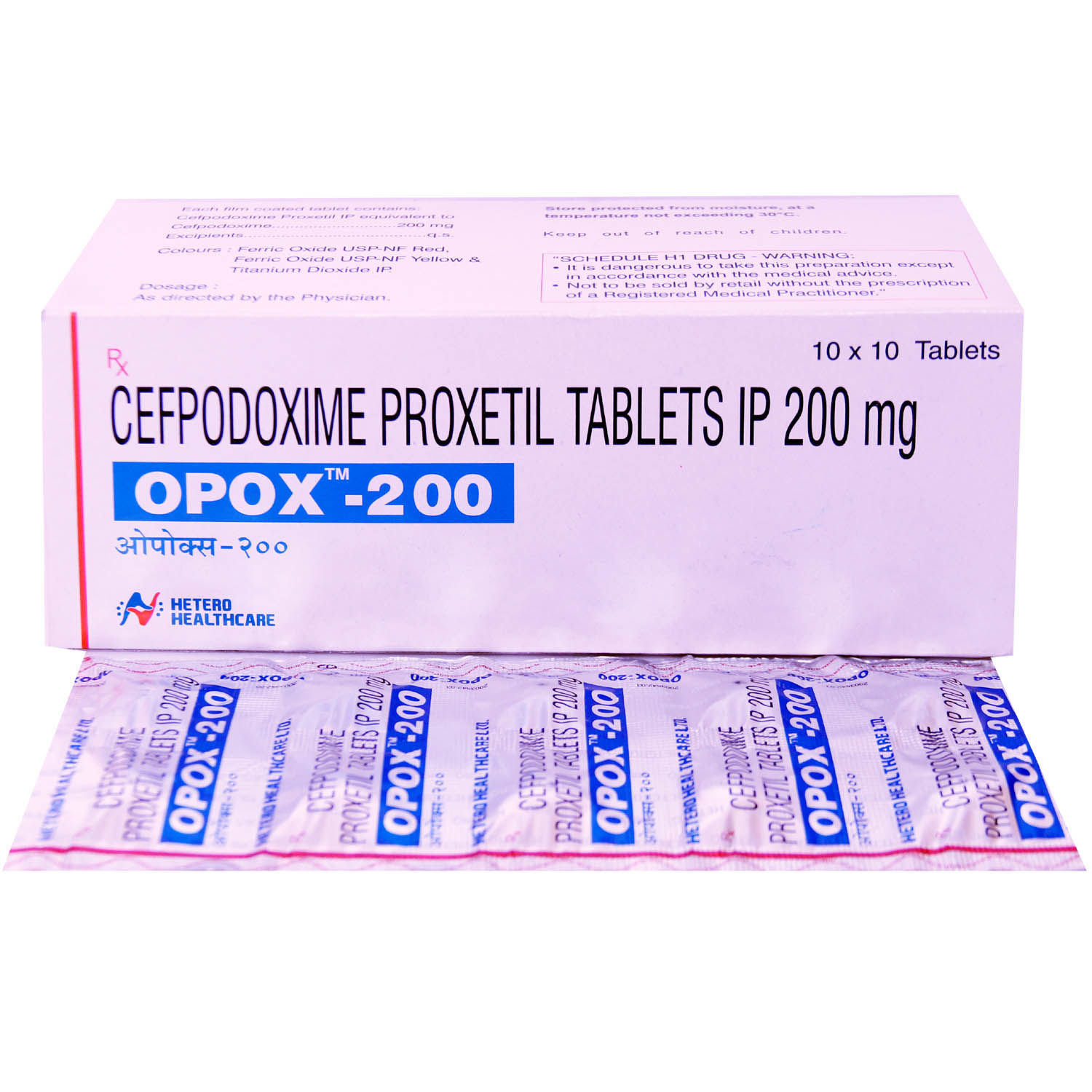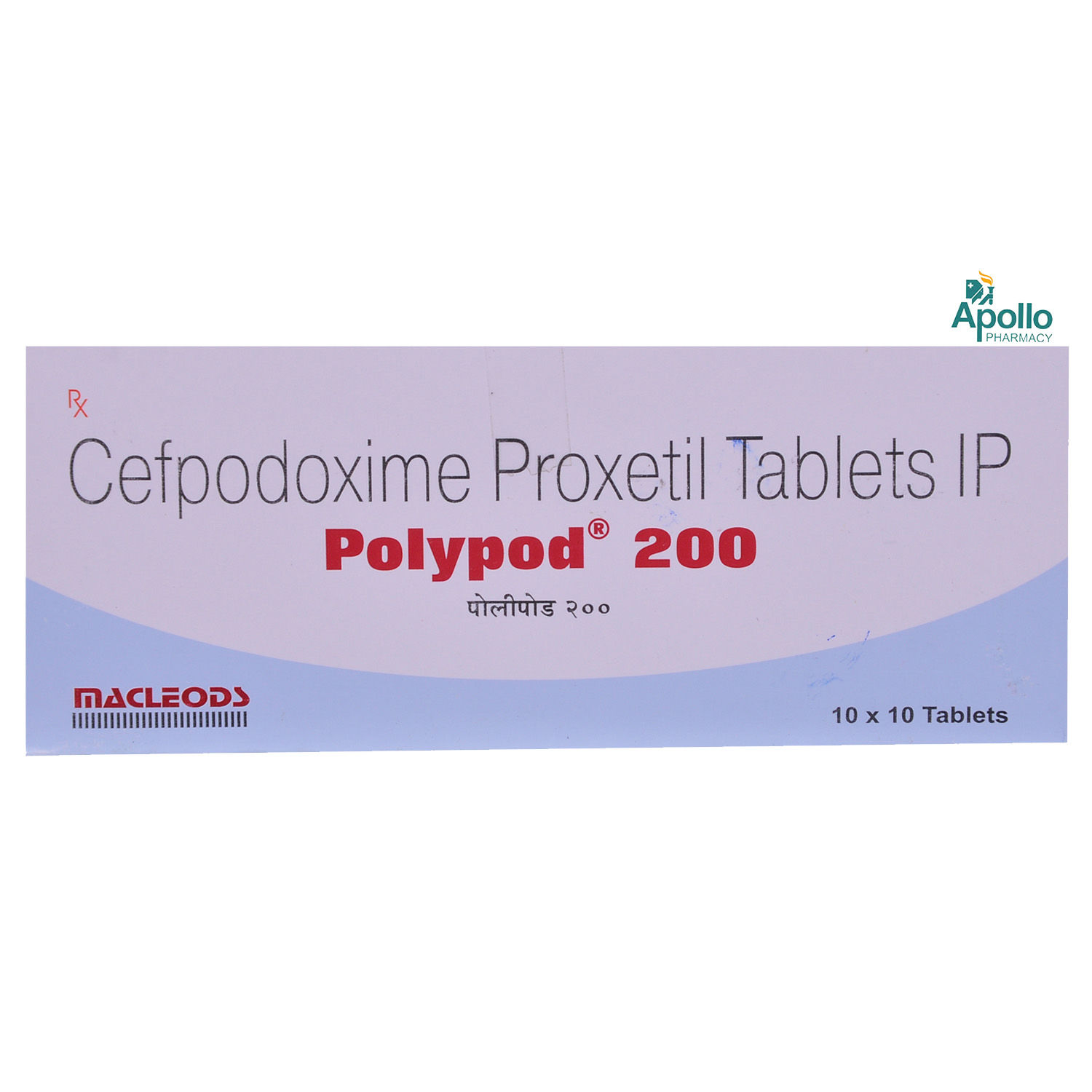Bactogard 200 Tablet 10's
Bactogard 200 mg Tablet is used to treat a wide range of bacterial infections of the ear, nose, throat, lower respiratory tract, urinary tract, skin, and soft tissue. It contains Cefpodoxime, which kills the bacteria and helps in treating and preventing the spread of bacterial infections. In some cases, it may cause side effects such as nausea, vomiting, diarrhoea (watery or loose stool), abdominal pain, loss of appetite, bloating, skin rash and itching. Before taking this medicine, you should tell your doctor if you are allergic to any of its components or if you are pregnant/breastfeeding, and about all the medications you are taking and pre-existing medical conditions.
₹171.5*
MRP ₹190.5
10% off
₹161.92*
MRP ₹190.5
15% CB
₹28.58 cashback(15%)
Free Delivery
With Circle membership
(Inclusive of all Taxes)
This offer price is valid on orders above ₹800. Apply coupon PHARMA10/PHARMA18 (excluding restricted items)
Know Your Delivery Time
Provide Delivery Location


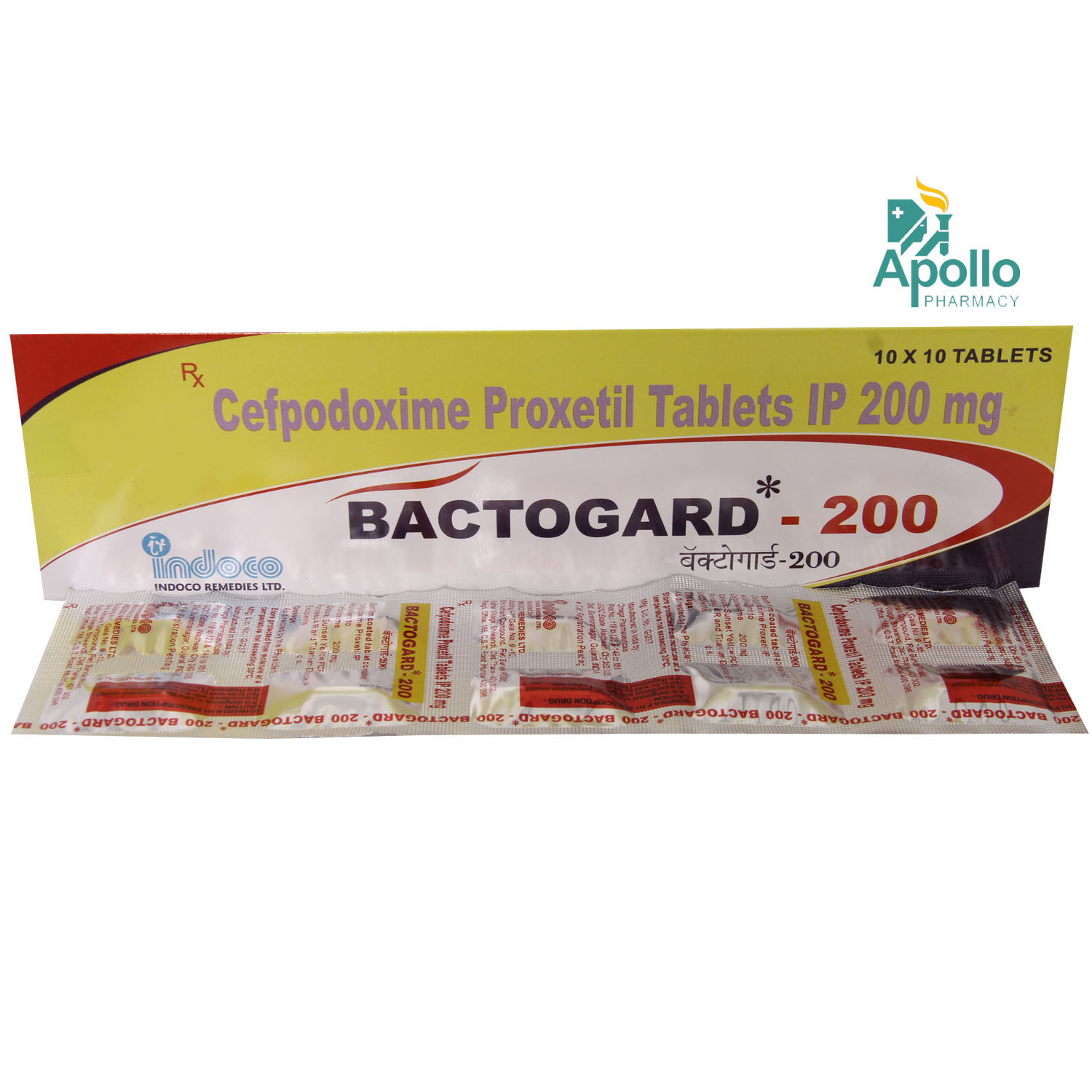


Available Offers
 Prescription drug
Prescription drugWhats That

Secure Payment

India's Most Trusted Pharmacy

Genuine Products
Composition :
Manufacturer/Marketer :
Consume Type :
Return Policy :
Expires on or after :
About Bactogard 200 mg Tablet
Bactogard 200 mg Tablet belongs to the group of cephalosporin antibiotics used to treat a wide range of bacterial infections of the ear, nose, throat, lower respiratory tract, urinary tract, skin, and soft tissue. Bacterial infections are caused due to the multiplication of harmful bacteria inside or on the body. Bactogard 200 mg Tablet does not work against infections caused by the virus, including cold and flu.
Bactogard 200 mg Tablet contains 'Cefpodoxime', which is a broad-spectrum antibiotic effective against both gram-positive and gram-negative bacteria. Bactogard 200 mg Tablet works by preventing the formation of bacterial cell covering (cell wall), which is necessary for their survival. Thereby, Bactogard 200 mg Tablet kills the bacteria and helps in treating and preventing the spread of bacterial infections.
In some cases, Bactogard 200 mg Tablet may cause side effects such as nausea, vomiting, diarrhoea (watery or loose stool), abdominal pain, loss of appetite, bloating, skin rash and itching. Most of these side effects do not require medical attention and will resolve gradually over time. However, you are advised to talk to your doctor if you experience these side effects persistently.
Talk to your doctor if you have/had inflammation in the bowel, kidney or liver problems. Consult your doctor if you are pregnant or breastfeeding. Bactogard 200 mg Tablet may cause dizziness, so be cautious while driving. Avoid alcohol consumption to prevent unpleasant side effects. Inform your doctor about all the medicines you are taking and your health condition to rule out any unpleasant side effects.
Uses of Bactogard 200 mg Tablet
Directions for Use
Medicinal Benefits
Bactogard 200 mg Tablet belongs to the group of antibiotic medicines called 'cephalosporins' used to treat a wide range of bacterial infections of the ear, nose, throat, lower respiratory tract, urinary tract, skin, and soft tissue. Bactogard 200 mg Tablet is a broad-spectrum antibiotic that is effective against gram-positive and gram-negative bacteria, aerobic and some anaerobic bacteria. Bactogard 200 mg Tablet works by preventing the formation of bacterial cell covering, which is necessary for their survival. Thereby, kills the bacteria and helps in treating and preventing the spread of infections.
How Bactogard 200 mg Tablet Works
Storage
Side Effects of Bactogard 200 mg Tablet
- Diarrhoea (loose or watery stool)
- Nausea
- Vomiting
- Abdominal pain
- Loss of appetite
- Bloating
What if I have taken an overdose of Bactogard 200 mg Tablet
Drug Warnings
Do not take Bactogard 200 mg Tablet if you are allergic to cefpodoxime or any antibiotics. Before taking Bactogard 200 mg Tablet , let your doctor know if you have/had inflammation in bowel, kidney or liver problems. Consult a doctor if you are pregnant or breastfeeding. Avoid alcohol consumption while taking Bactogard 200 mg Tablet to prevent unpleasant side effects. Bactogard 200 mg Tablet may cause dizziness, so be cautious while driving.
Drug-Drug Interactions
Drug-Drug Interactions
Login/Sign Up
Co-administration of Bactogard 200 Tablet 10's with Heparin may enhance the levels or effects of heparin by anticoagulation (preventing blood from clotting).
How to manage the interaction:
Although there is an interaction, Bactogard 200 Tablet 10's can be taken with Heparin if prescribed by the doctor. Do not stop using any medications without a doctor's advice. Do not discontinue the medication without consulting a doctor.
Co-administration of Bactogard 200 Tablet 10's with the Cholera vaccine may reduce the effectiveness of the vaccine.
How to manage the interaction:
Talk to your doctor before receiving the Cholera vaccine if you are currently being treated with Bactogard 200 Tablet 10's or have been treated within the last 14 days. To ensure adequate vaccine response, you should not receive cholera vaccine until at least 14 days after you complete your antibiotic therapy. Do not discontinue the medication without consulting a doctor.
Drug-Food Interactions
Drug-Food Interactions
Login/Sign Up
Diet & Lifestyle Advise
- Antibiotics can alter the useful bacteria in the stomach, which help in digestion. Therefore, you are advised to take foods rich in probiotics, such as yoghurt/curd, kefir, sauerkraut, tempeh, kimchi, miso, kombucha, buttermilk, natto and cheese.
- Eat fibre-rich food like whole grains, beans, lentils, berries, broccoli, peas and bananas.
- Avoid consumption of alcohol and usage of tobacco.
Habit Forming
Therapeutic Class
Bactogard 200 mg Tablet Substitute

Monocef-O 200 Tablet 10's
₹19.35per tabletGudcef-200 Tablet 10's
₹17.82per tabletSwich 200 Tablet 10's
₹19.80per tabletDoxcef 200 Tablet 10's
₹18.32per tabletZedocef 200 Tablet 10's
₹18.36per tablet
Product Substitutes
Alcohol
Unsafe
Avoid consuming alcohol while taking Bactogard 200 mg Tablet as it might cause increased dizziness.
Pregnancy
Caution
Bactogard 200 mg Tablet belongs to pregnancy category B. Please consult your doctor if you are pregnant; your doctor will prescribe Bactogard 200 mg Tablet only if the benefits outweigh the risks.
Breast Feeding
Caution
Bactogard 200 mg Tablet passes into breast milk. Please consult your doctor if you are breastfeeding.
Driving
Safe
Bactogard 200 mg Tablet does not affect your driving ability.
Liver
Caution
Dose adjustment may be needed. Please consult your doctor if you have any concerns regarding this or if you have liver impairment/liver disease.
Kidney
Caution
Dose adjustment may be needed. Please consult your doctor if you have any concerns regarding this or if you have kidney impairment/kidney disease.
Children
Safe if prescribed
Bactogard 200 mg Tablet is safe for children if prescribed by the doctor. However, the use of Bactogard 200 mg Tablet is not recommended for children below 2 months as safety and efficacy have not been established.
FAQs
Country of origin
Manufacturer/Marketer address
Customers Also Bought
Disclaimer
Author Details
We provide you with authentic, trustworthy and relevant information






